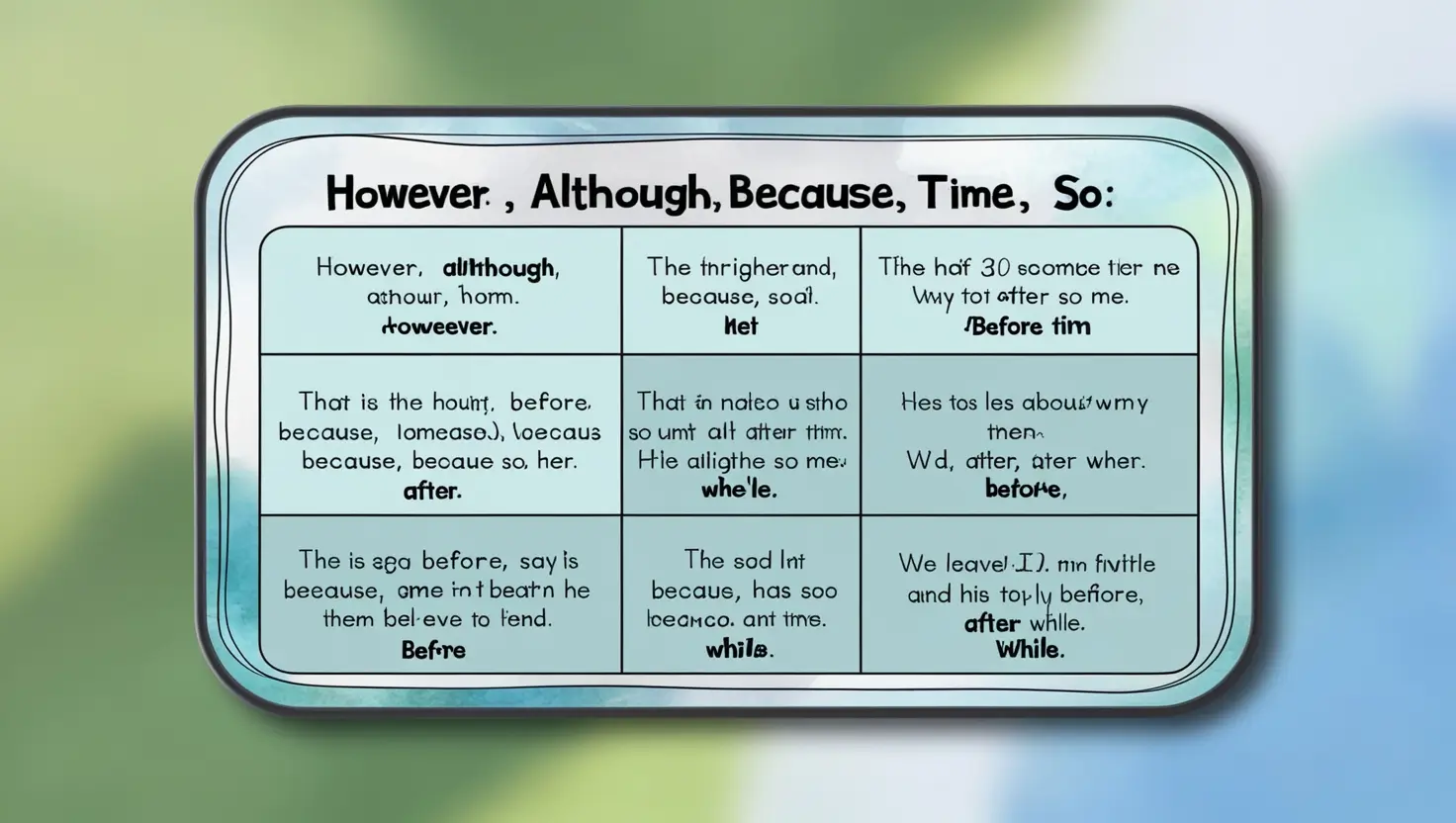However, although, because, so, and time connectors
- Home ›
- Grammar ›
- A2 Pre-intermediate ›
- However, although, becaus...




Choose so, because, but, although to complete the sentences below.
Choose the correct forms for the gaps below.
Fill in the gaps with the connectors in the box below.

- 26 December, 2024
- 1527
- Grammar
- A2 Pre-intermediate
However, although, because, so, and time connectors
Introduction
In English, connectors are used to link ideas and show relationships between clauses. This guide focuses on four essential connectors: however, although, because, and so, as well as common time connectors like before, after, and while. These connectors help make your sentences clear and logical.
Clauses of Contrast
However
The word however is used to introduce a contrasting idea. It often starts a new sentence and is followed by a comma.
Correct: We wanted to go hiking. However, it started to rain.
Incorrect: We wanted to go hiking however, it started to rain.
Although
Although introduces a contrast within the same sentence. It is followed by a subject and a verb. Do not use a comma after although.
Correct: Although it was cold, we went swimming.
Incorrect: Although, it was cold, we went swimming.
Clauses of Reason
Because
Because explains the reason for something. Use it before a subject and a verb.
Correct: She stayed home because she was sick.
Incorrect: She stayed home because of she was sick.
Because of
Because of is followed by a noun or noun phrase.
Correct: She stayed home because of her illness.
Incorrect: She stayed home because of she was sick.
Clauses of Result
So
So shows the result of an action. It is usually placed in the middle of a sentence, preceded by a comma.
Correct: It was late, so we decided to go home.
Incorrect: It was late so we decided to go home.
Time Connectors
Before
Use before with a noun, -ing verb, or a full clause.
Correct: Before leaving, she checked her bag.
Incorrect: Before to leave, she checked her bag.
After
After works similarly to before and can be followed by a noun, -ing verb, or a clause.
Correct: They ate dinner after arriving home.
Incorrect: They ate dinner after they have arrived home.
While
Use while to talk about two actions happening at the same time.
Correct: He listened to music while studying.
Incorrect: He listened to music while he studies.
Common Mistakes
- Incorrect: When he will arrive, we’ll start the meeting.
- Correct: When he arrives, we’ll start the meeting.
Unfortunately, we currently do not have teaching materials available on this topic. We are working with all our efforts to prepare it. You can subscribe to Verbooze to be notified once the teaching materials are ready.




English Learning Made Easy & Accessible for Everyone
Boost your English skills with interactive lessons, grammar explanations, reading and listening exercises, and real-time feedback. Join our growing community and start improving today — all completely free!

